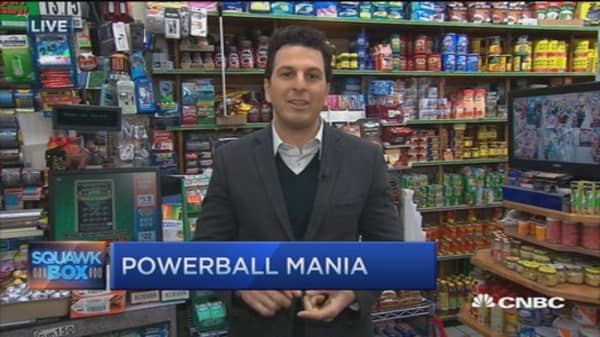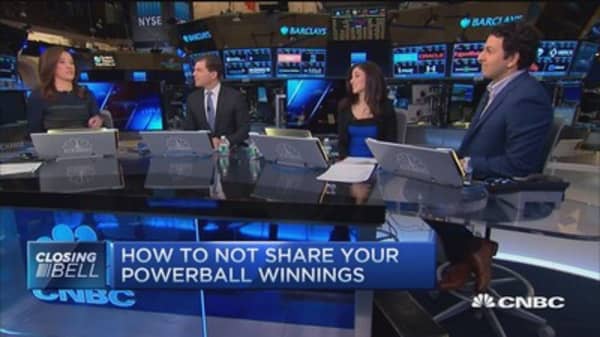Forget MegaMillions — how about a Power Billion?
The jackpot for Wednesday night's drawing of the Powerball lottery is now estimated at $1.5 billion, the highest U.S. payoff ever. With a potential windfall like that, it's easy to rationalize throwing down $2 for a ticket and a shot at a life of leisure.
In fact, it's theoretically easy to guarantee a profit. At least if you don't think about it too hard.
To guarantee a win, you'd need to buy a ticket with every single combination of numbers. That way, no matter what numbers are drawn, you'd have the winning ticket.
Powerball works by picking random balls to create a set of numbers. Five balls are drawn from a bin of 69 white balls, and one red ball (the "powerball") is drawn from a different bin of 26 balls. To win the jackpot, you have to pick numbers that match all five of the white balls, plus the red ball. (If you pick the five white balls but miss the powerball, you win a measly — yawn — $1 million.)
Doing the math, that means there are 292,201,338 different combinations of numbers you could pick.










